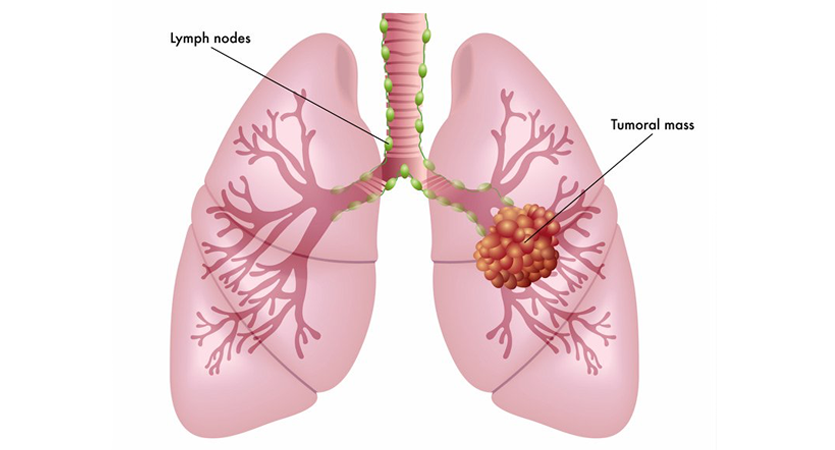

MBBS (AIIMS), MS (Surgery, AIIMS), MNAMS, FACS (USA), FICS (USA), FUICC
Mon, 29 Jan 2024

Lung cancer is a formidable adversary that continues to affect millions of individuals worldwide despite numerous preventive actions and warnings. It is one of those complex diseases that demands a comprehensive approach to timely diagnosis and effective treatment.
Dr. Arvind Kumar, who is a leading chest surgeon and lung cancer specialist, heads the lung cancer program and department at Medanta Hospital; offering surgical and non-surgical interventions is essential for improving patient outcomes and quality of life.
This guide will explore everything one needs to know regarding our lung cancer program and the different approaches and interventions implemented.
Lung cancer is the no. 1 cancer in males in India. We have vast experience in treating these cases particularly by Video-Assisted Thoracic Surgery (VATS or Key-hole). Facing cancer can be one of the most significant challenges a person encounters. Dr. Arvind Kumar has a keen interest in helping patients diagnosed with Lung Cancer.
Before we walk you through the lung cancer program and the elements that contribute to the infrastructure, let us first clarify the basics.
Lung cancer is one of the leading types of cancer due to abnormal cell growth in the lungs. When categorizing this condition, lung cancer can be divided into two types:
Irrespective of the type, early detection of lung cancer is key to optimal management of the condition and the possibility of a longer and healthier life.
Since lung cancer is one of the most severe and aggressive forms, early detection is key to managing and preventing further spread.
One of the most common issues with lung cancer is that the lung cancer symptoms often go undetectable until its too late. Hence, even the slightest recurrence in the symptoms, like coughing, wheezing, shortness of breath, chest infections, etc., should be taken seriously.
Some of the most effective routes of diagnosis include:
Staging helps determine the extent of cancers spread, with stages ranging from 0 (localized) to IV (advanced). This information guides treatment decisions.
Depending on the lung cancer stage, the specialist will tailor a treatment plan for the patient that best aligns with their well-being and their chances of beating the disease.
Following are a few different treatment options:
1. Surgical resection
Surgical resection involves the removal of the tumor and, in some cases, nearby lymph nodes. The type of surgery depends on the tumors size, location, and stage.
Standard surgical procedures for lung cancer include:
This kind of intervention is effective for early-stage lung cancer
2. Video-assisted thoracoscopic Surgery (VATS)
This is another minimally invasive surgical approach that works in treating lung cancer. The surgical approach uses small incisions and a camera to guide the surgeon. This technique reduces pain and shortens hospital stays, making it a preferred choice for many patients.
The surgery is generally coupled with radiation therapy for optimal results and to help the patients with treatment and recovery.
1. Chemotherapy
It is a systematic treatment that uses drugs to kill cancer cells throughout the body. It is often combined with surgery or radiation therapy and is essential in treating small-cell lung cancer.
2. Targeted therapy
Patients with non-small cell lung cancer are often treated with targeted therapy. It is a precision approach targeting specific molecules involved in cancer growth and works with NSCLC with specific genetic mutations such as EGFR, ALK, or ROS1. Compared to traditional chemotherapy, they have fewer side effects.
3. Immunotherapy
Immunotherapy harnesses the bodys immune system to fight cancer. The treatment often uses checkpoint inhibitors for treating lung cancer. These treatments are not easily accessible but have shown promising results for certain patients.
Our team is a team of best Lung Cancer Surgeons and Thoracic Surgeons in India. With wide experience we strive our best to help Lung cancer patients not only by offering the state of art treatment facilities but also help them face the challenges of living with cancer. This is achieved by providing information, education and supporting them physically, emotionally and mentally. Whether you are dealing with a new diagnosis or are looking for additional support and information, Centre for Chest Surgery can help.
Best Lung Cancer Treatment Facilities in India Our team is a team of best Lung Cancer Surgeons and Thoracic Surgeons in India. With wide experience we strive our best to help Lung cancer patients not only by offering the state of art treatment facilities but also help them face the challenges of living with cancer. This is achieved by providing information, education and supporting them physically, emotionally and mentally.
Whether you are dealing with a new diagnosis or are looking for additional support and information, the Centre for Chest Surgery can help.
A comprehensive lung cancer program is integral to supporting the diagnosis and treatment of a patient and offering them a better chance at beating the disease. With renowned specialists like Dr. Arvind Kumar, patient care addresses individuals and their families physical, emotional, and psychological needs.
For more details about our lung cancer program and appointments, kindly contact us directly.
Copyright @ (Prof.) Dr. Arvind Kumar. All Rights Reserved / Thoracic Surgical Oncologis
License Number: U.P State Medical Council (India) No. 27637
